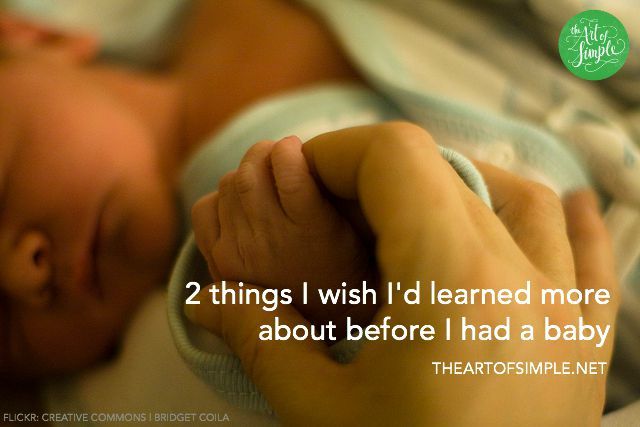I have a 2 month old baby girl on my lap and an almost 7 year old boy sitting on the floor reading comics. I’ve learned a lot since my son was an infant and I now have a lot more friends with kids than I did 7 years ago when I was pregnant the first time.
When I was pregnant with my son, I did everything possible to be completely prepared for labor and childbirth. And it definitely contributed to my positive birth experience with him. Unfortunately, I wasn’t prepared for what I think are often the two biggest challenges after the baby is actually born: breastfeeding and infant sleep.
If you’re pregnant or know someone who is pregnant, I encourage you to share this post with them so they can get more familiar with these two topics and hopefully be less overwhelmed about these subjects when they are oscillating between newborn bliss and the misery of sleep deprivation.
Breastfeeding
Whether you are planning on breastfeeding for just a few weeks until you go back to work or as many years as the kid is inclined, it’s important to be prepared. The first 7-10 days can be the most confusing and exhausting days you have ever experienced in your life, but if you do the things below it will make a huge difference.
1. Read about it.
Step one is fairly obvious, but to be honest I didn’t really do it. I foolishly thought it would be pretty easy, as most of the women I’d seen do it made it look simple. I didn’t realize how challenging it can be at the beginning, or that just because your baby is getting enough calories doesn’t mean he actually has a correct latch.
2. Take a class.
If there’s a class available in your community or from your health care provider, take it. Seriously.
3. Find a breastfeeding support group before baby is born.
You’ve got to do this ahead of time. It may seem like an easy thing you could do if you happen to need it once the baby is born, but trust me, your nipples will thank you. Print out or save the information somewhere handy so that you don’t have to use much brain power to get yourself there if you need the help after you’re home from the hospital. I really wish I had gotten help sooner with my son instead of suffering through a few months with a painful latch.
Breastfeeding is beautiful and special but it can also be very painful, especially at the beginning – or even later, when your latch isn’t right. With my first child, I went a few months with a bad latch and had all the misery and discomfort that came along with it. With my recent babe, I took all the help I could get at the hospital. When I got home and things still seemed too painful, I went to a support group ASAP, and didn’t wait to get help from a lactation consultant. The first seven to ten days can be painful even while you’re adjusting, but it’s important to get things right for everyone’s sake.

Photo by Maja
4. Get some nursing bras or tank tops ahead of time.
To me, the only reason worth leaving the house in the first week is for help with breastfeeding. And although your partner will probably happily run to Target and get whatever you request, having someone else pick out a nursing bra for you isn’t generally ideal. Get some ahead of time, buy a size bigger than you think you’ll need and save the receipt in case you didn’t buy big enough, or find you don’t like a certain style.
5. Get some washable and some disposable nursing pads.
Everyone’s body and preferences are different, but I find that having both on hand right away is very helpful. You may also want to get the soothing gel things you can refrigerate and put right on your nipple for comfort during that first painful week. I only used these at the beginning and then didn’t need them anymore.
6. Ask other mothers about their experience breastfeeding.
If at all possible, have these conversations face to face. Certainly a call for help on Facebook can be incredibly useful, but don’t miss out on the opportunity to connect with other mothers in person about the challenging issues of parenting. Talk to other moms you know (or consider asking all those strangers who come up to give you their parenting advice while you’re pregnant). Ask what their experience was like when they started breastfeeding. Be sure to talk to more than one person because everyone will have a different experience – some positive, some negative.
7. Have a pump on hand, even if it’s just an inexpensive hand pump.
Your healthcare provider may have an electric one you can rent for free when you leave the hospital, or you may have a friend who is getting rid of one. When your milk comes in, it can be very painful until you get the supply, demand, and latching all figured out. It can be a lifesaver to simply release a little pressure so the baby can latch, or if you’re feeling engorged.

Photo by Bridget Coila
Infant Sleep
I’m not here to be the baby police and shame anyone into one system for getting your baby to sleep. Exactly the opposite. Infant sleep can be just as controversial as vaccines. From co-sleeping to cry-it-out, there’s a wide array of theories on what is best for your baby and when they should be “sleeping through the night”. I’m not here to tell you what method to use, but simply that you should do your own research ahead of time to know what’s out there and how different the landscape of opinions is.
For example, I didn’t know anything about swaddling until my first child was a few months old and he was definitely one whose sleep would have benefitted from it from day one. Basically, I didn’t read about sleep until a few months in, when it was suddenly confusing. My tiny baby who used to fall asleep anywhere no matter the location or noise level suddenly struggled to fall asleep and then wouldn’t stay asleep when I put him down. I wished I’d been aware from the start that there’s little things you can do right away to help them get into positive and peaceful sleep rhythms.
Knowing more about sleep doesn’t guarantee your baby will be “sleeping through the night” at age X. It can simply help you avoid the confusion I experienced when I waited too late to learn about how it works because I foolishly thought it would be easier. It can also help you take other parent’s advice or stories with a grain of salt and put it in context.
Remember that how often and how much your baby sleeps is NOT a sign of whether you are a good parent or not. Seriously. Infant sleep has so much more to do with the baby’s temperament than it does your parenting. This whole newborn thing is hard. Be kind to yourself as you figure it out.
Knowing more about infant sleep and breastfeeding before your baby is born doesn’t guarantee that everything will be smooth or easy. It just means you’ll have a little bit better handle on the resources available to you when you feel overwhelmed and confused.
Oh, and one more tip. Invest in a good insulated coffee pot or mug and only pour a small portion into your cup at a time. Don’t expect to finish a whole cup in one sitting. This is the key to being able to drink your coffee while it’s hot when you have a newborn. You’re welcome.
What would you add to this list? What do you wish you’d known before your baby was born?



